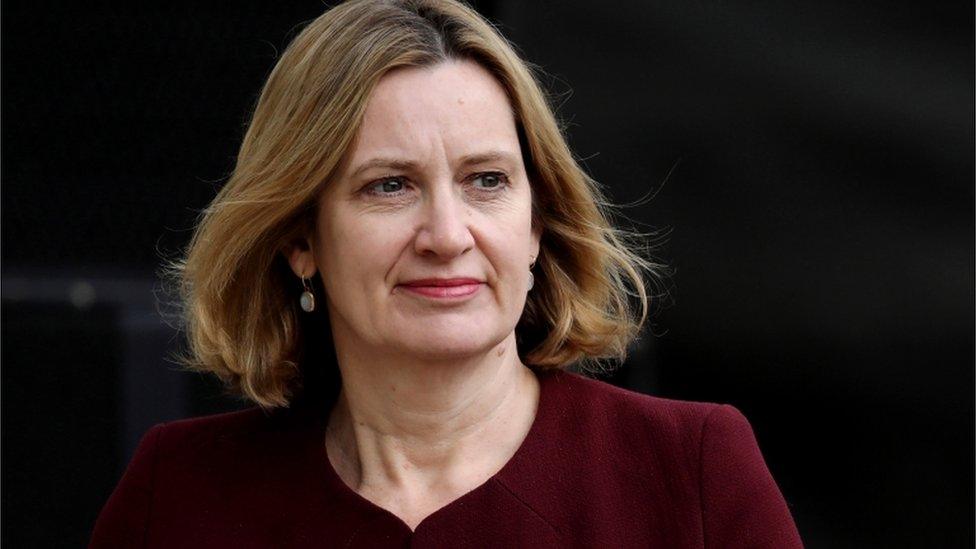Lady Sylvia Hermon warns of 'violence' over hard border
- Published
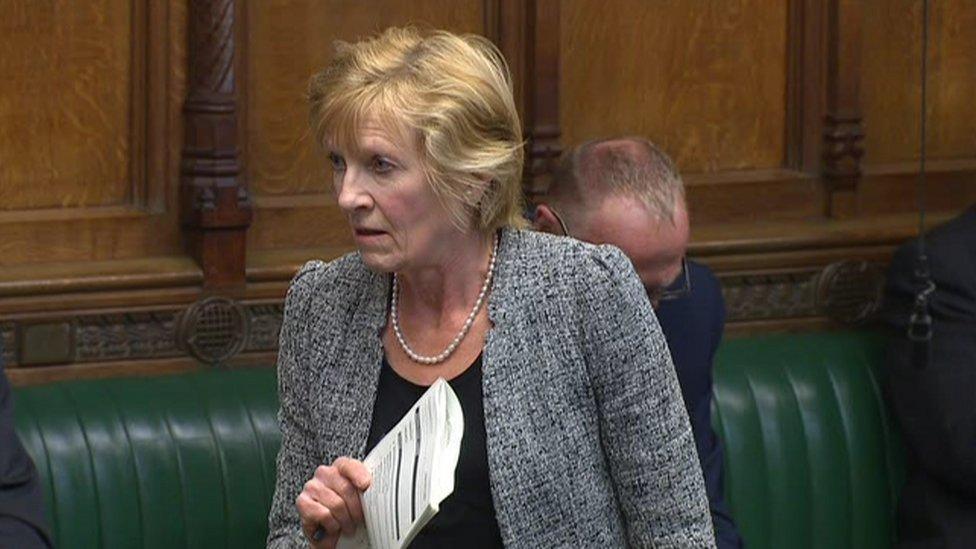
Lady Sylvia Hermon made the claim in the House of Commons
Northern Ireland MP Lady Sylvia Hermon has said a hard Irish border after Brexit will see the return of violence.
The Independent Unionist made the claim during a House of Commons debate.
The debate motion urged the government to include "an effective customs union between the two territories" as an objective in Brexit talks with the EU.
The motion was passed, but the vote is unbinding which means the government's aim of leaving the customs union is not affected.
Lady Hermon told the Commons it was a "very dangerous strategy" for politicians to support the idea that "no deal would be better than a bad deal" between the UK and the EU in the Brexit negotiations.
"If we have no deal, we will inevitably have a hard border in Northern Ireland and we will see the return of violence in Northern Ireland," she said.
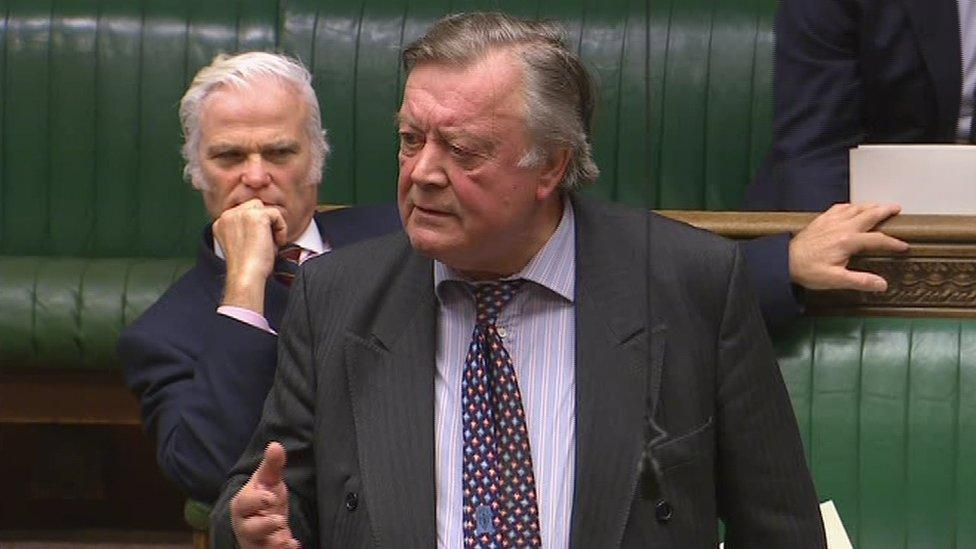
Ken Clarke told MPs a hard border would "outrage" Irish nationalists
The former Conservative chancellor Ken Clarke told the debate it was obvious no-one had considered the Good Friday Agreement during the referendum debate.
He accused Brexiteers of addressing the 1998 agreement "as if it's all over now" - something he said was "very, very dangerous".
Mr Clarke said the return of a hard border would "outrage" nationalists and republicans and he claimed it would be "grossly irresponsible".
But the Northern Ireland-born Labour MP Kate Hoey accused the EU of seizing on divisions over Brexit to make "unreasonable demands" over the Irish border.
She said claims about violence returning were "blackmail".
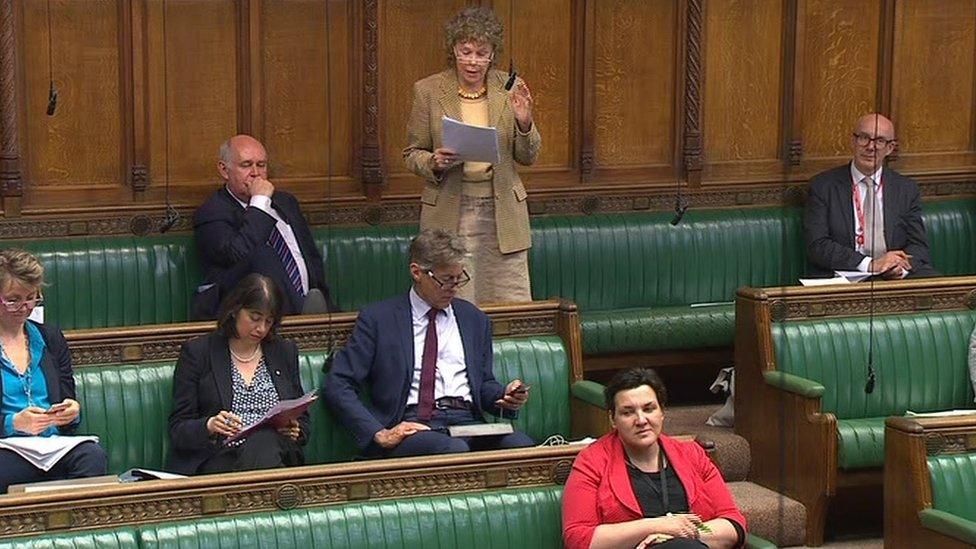
Vauxhall Labour MP Kate Hoey is originally from County Antrim
None of the DUP's 10 MPs were present at the debate. The party's deputy leader, Nigel Dodds, said the vote was of no significance whatsoever.
He told reporters at Stormont that most pro-Brexit voters think the UK staying in EU customs union is the "worst of all worlds", as it will not allow the UK to benefit from its own trade deals.
However, Mr Dodds clarified that the DUP's fundamental red line is not membership of the customs union, but that Northern Ireland must stay in "lockstep with the rest of UK" after it leaves the EU.
The government is facing three more votes over the next month which will be binding and could force it to change course over leaving the customs union after Brexit.
- Published23 April 2018
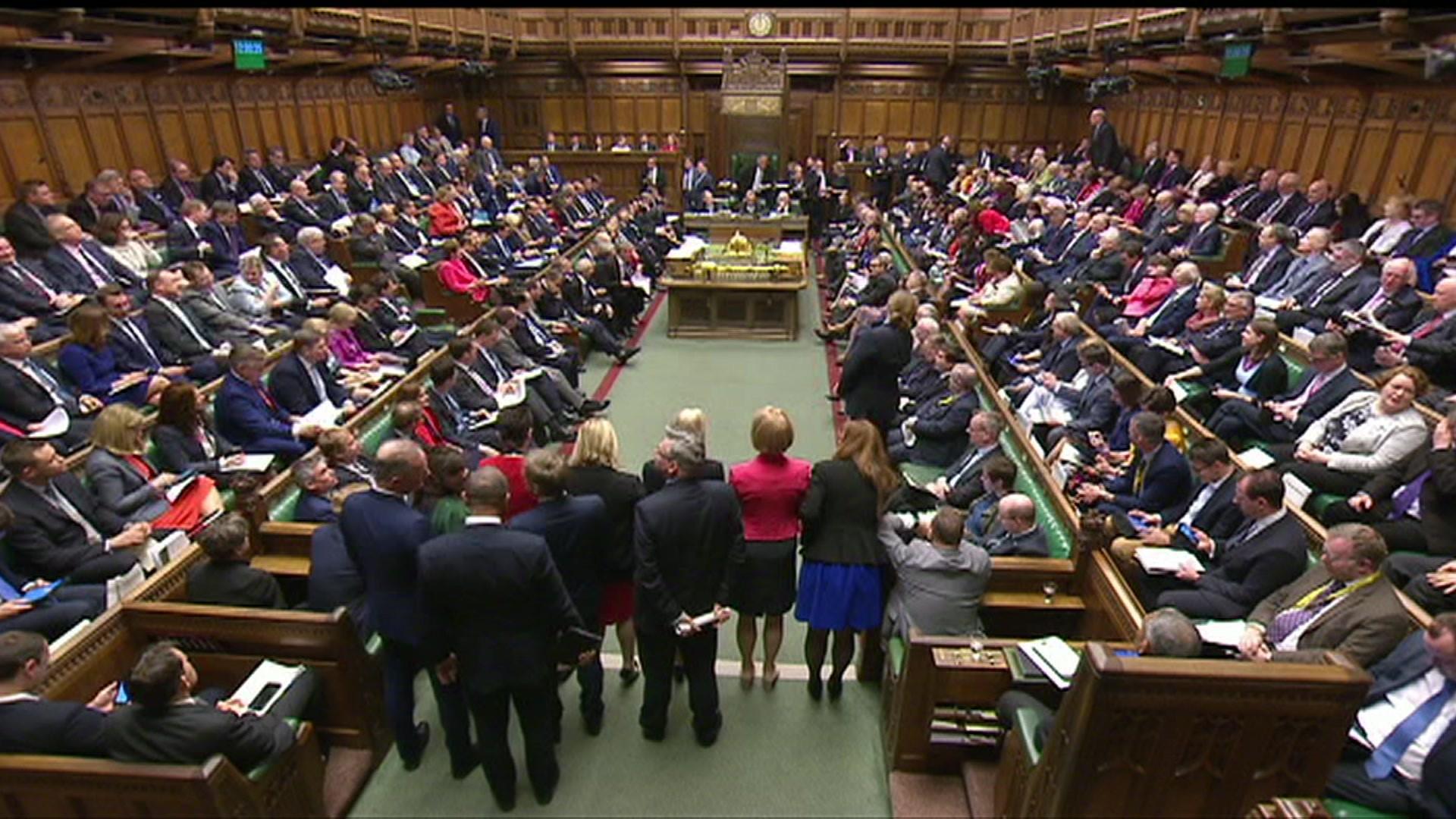
- Published26 April 2018
